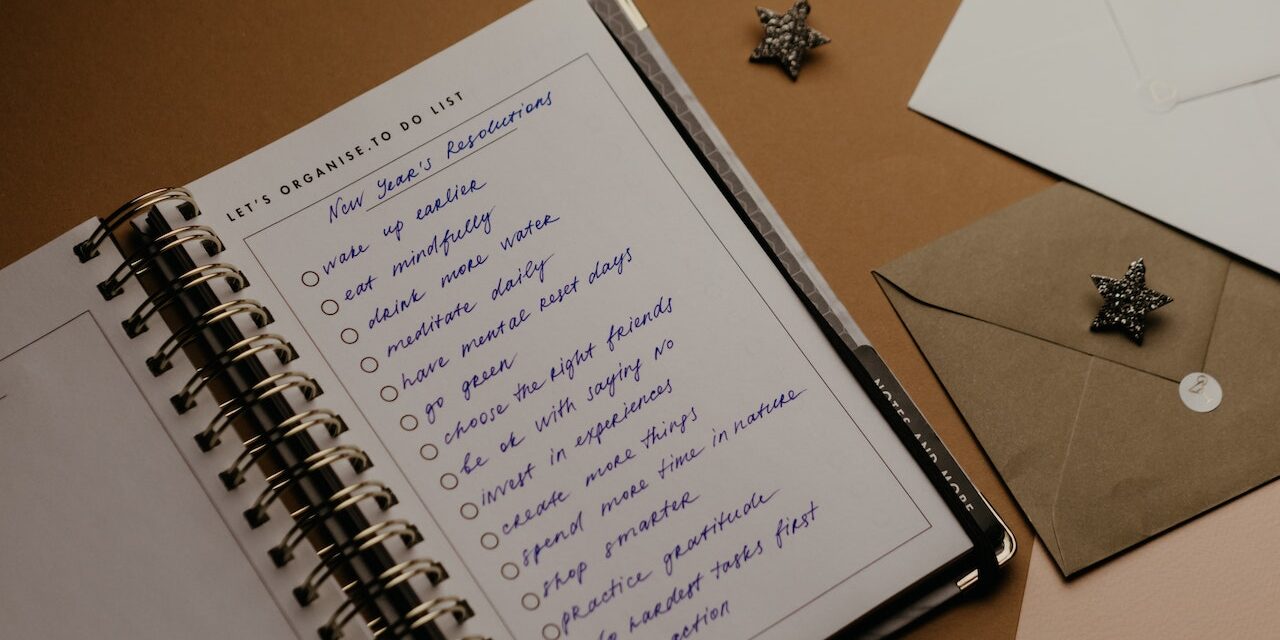With the economy in disarray and a possible recession in 2023, it’s best to focus on the positive.
Although they often get a bad rap for limited follow-through, New Year’s resolutions can still be beneficial to write down and pursue.
A New Year’s resolution can be a promise that a person makes to themselves to do or not do something specific, usually hoping to improve their life or make a positive change. New Year’s resolutions are often made at the beginning of the year and are intended to be kept throughout the year.
Table of Contents
What are 15 ideas for New Year’s Resolutions?
Some common New Year’s resolutions include—exercising more, eating a healthier diet, saving money, quitting smoking or using tobacco, getting organized, learning a new skill or hobby, volunteering more often, spending more time with loved ones, getting more sleep, and reducing stress.
Here are 15 ideas for New Year’s resolutions:
- Exercise regularly
- Eat a healthier diet
- Save money
- Quit smoking or using tobacco
- Get organized
- Learn a new skill or hobby
- Volunteer more often
- Spend more time with loved ones
- Get more sleep
- Reduce stress
- Quit a bad habit
- Travel more
- Read more books
- Reduce screen time
- Practice gratitude and positive thinking
How do you create your New Year’s resolutions?
New Year’s resolutions are a way for people to set goals for themselves and make positive life changes. They can be a way to reflect on the past year and think about what changes or improvements a person would like to make in the coming year.
Here are some steps to help you create New Year’s resolutions:
- Think about what you want to achieve: Reflect on the things you want to accomplish in the coming year. Consider your long-term goals and what changes you would like to make in your life.
- Make specific, achievable goals: Choose clear, measurable, attainable, relevant, and time-bound (SMART goals). This will help you stay focused and motivated.
- Write down your resolutions: Write down your resolutions and keep them somewhere visible, like on a bulletin board or in a journal. This will help you stay accountable and motivated.
- Plan how you will achieve your goals: Create a plan of action that includes specific steps to achieve your goals. This will help you stay on track and make progress toward your resolutions.
- Be realistic: Don’t try to change everything at once. Choose a few resolutions that are important to you and that you can realistically achieve.
- Seek support: Find someone with whom you can share your resolutions and who can support and encourage you along the way. This could be a family member, an individual friend, or a group with similar goals.
Remember, it’s okay if you don’t achieve all of your resolutions. The most important thing is to make an effort to improve and grow as a person.
How do you stick to a goal or New Year’s resolution?
While it’s important to remember that it’s okay if not all resolutions are achieved, setting goals and working towards making positive changes can be beneficial in and of itself. It can help people feel more in control of their lives and encourage personal growth.
Here are some tips for sticking to your New Year’s resolution:
- Make a plan: Determine specific, achievable goals and create a plan to reach them.
- Start small: Start with small, achievable goals and work your way up. You don’t have to be perfect immediately.
- Seek support: Find a friend or group of people who can support and encourage you to stay on track.
- Keep track of your progress: Write down your goals and track your progress. This can help you stay motivated and see how far you’ve come.
- Be consistent: Sticking to your plan and making it a regular routine is essential.
- Don’t treat yourself too harshly: If you slip up, don’t give up. Instead, focus on getting back on track and not letting one setback derail your entire resolution.
- Reward yourself: Give yourself a reward for reaching your goals. This can keep you motivated and encourage you to continue making progress.
Remember, it takes time and effort to make lasting changes. Keep going even if you are still waiting to see immediate results. Stay positive and work towards your goals.
What are the top 5 New Year’s resolutions?
According to a survey conducted by the website Statistic Brain, the top five New Year’s resolutions in 2021 were:
- Lose weight
- Get organized
- Spend less, save more
- Enjoy life to the fullest
- Stay fit and healthy
It’s worth noting that the popularity of specific resolutions can vary yearly and may be influenced by current events and trends. These are just a few of the most common resolutions that people have made in the past.
Where did the tradition of New Year’s resolutions start?
The tradition of making and keeping New Year’s resolutions goes back to ancient times. The ancient Babylonians are credited as the first to make New Year’s resolutions over 4,000 years ago. They made promises to their gods at the beginning of each year that they would return borrowed objects and pay their debts.
The Romans also made New Year’s resolutions, and early Christians adopted their tradition of making resolutions. In the medieval period, knights took the “peacock vow” at the end of the year, promising to be more chivalrous in the year to come.
The modern tradition of making New Year’s resolutions can be traced to the early modern period. It became more common in the 19th and 20th centuries, and today, it is a widespread tradition practiced by people worldwide.





